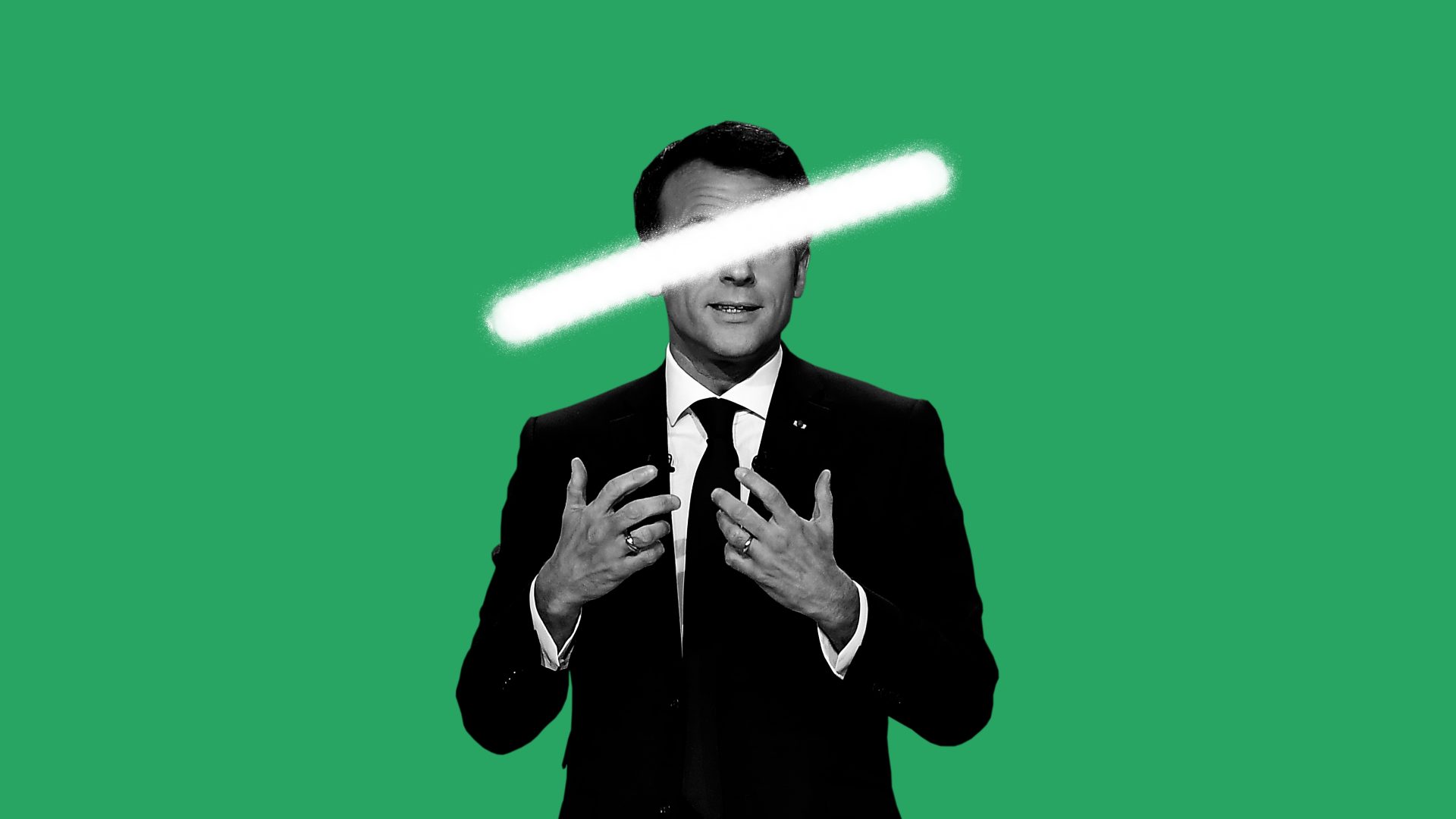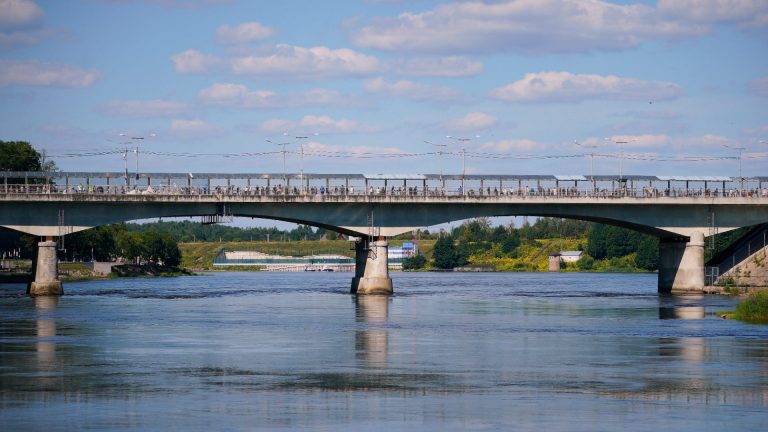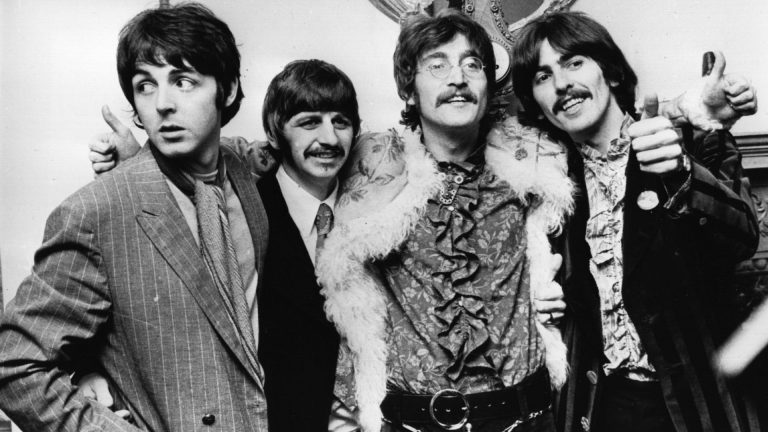If there was shock across Europe at the results of the French parliamentary polls in June, there was also a definite touch of schadenfreude. And that’s because President Emmanuel Macron, whose political alliance lost its absolute majority, is an easy man to dislike, if not an easy man to dismiss.
That’s a problem for the European Union as it grapples with war and want, and seeks to delineate a vision of its future. Because love him or loathe him, Macron is the only European leader daring to, as he put it in a January speech, “invent a possible dream”.
Macron’s vision for Europe is built around a series of big ideas: strategic autonomy to reduce the bloc’s military, economic and technological dependence on other powers; a European political community that would encompass candidate countries and possibly the UK; and his insistence on the creation of a “Europe that protects”.
The 44-year-old president was able to push this agenda during France’s six-month presidency of the European Council this year, even as he fought a re-election campaign in April. His ambitions are grand, as befits a man whose parliamentary setback led to a flurry of headlines evoking the end of the Jupiterian era, a reference to the Roman god and Macron’s top-down style of governance.
In that January speech at the start of France’s term as council president, Macron sketched out his grandiose idea: “Our ability to invent a possible dream, to make it tangible, to make it a reality, to make it useful to our citizens, will be the key to our success. We have the strength, and the means.”
The June election changed all that, with many predicting that Macron will now have to – albeit reluctantly – turn his attention from shaping Europe’s future to the baser business of political horse-trading at home to ensure his team can actually govern.
Mujtaba Rahman, managing director for Europe at the Eurasia Group, says there is no doubt Macron will be distracted as he tries to broker the compromises that will be necessary to push his policies through the National Assembly. He can’t rely on the conservative Les Républicains, who will fear being tainted by any association with an unpopular president, and so deals will probably have to be done on an ad-hoc basis.
“It’s a very hostile parliament, it’s a very difficult domestic context and it’s absolutely going to distract from Macron’s focus abroad, and his ability to look beyond what’s going on in France,” said Rahman, who believes Macron may be driven to call an early election next summer.
In the meantime, there are few obvious candidates to step into Macron’s EU shoes, with his German counterpart notably missing in action. And that’s a break with the past. From Charles de Gaulle and Konrad Adenauer, to François Mitterrand and Helmut Kohl and beyond, France and Germany have long been viewed as the twin engines of European integration.
But since Angela Merkel stepped down as German chancellor last December and Olaf Scholz was elected in her place, the European Union plane has been getting by, some might say, on just one engine and now that is also sputtering.
“I think the leadership is totally adrift, perhaps more so than at any time in recent history,” said Rahman. For him, Scholz is a weak chancellor and poor communicator, while Italy’s prime minister, Mario Draghi, may have political heft but he is in a tenuous position himself, with an election due next year and fears rising of a far-right win in a country again grappling with soaring borrowing costs and economic hardship.
Susi Dennison, director of the European Power programme at the European Council on Foreign Relations (ECFR), believes the dearth of alternatives means Macron will still have an influential role to play in Europe. She cites a recent ECFR study that looked at opinions in 27 states about French and German leadership of the climate agenda.
“There were obviously strong expectations from the new German government and what you can see is a sense that you’re not getting the kind of thought leadership that perhaps we were expecting on the climate agenda given that the Greens are in government… I think the future of Europe is another one of these areas where we are not going to see much drive from other capitals so there is still a space for France,” she said.
Spain’s prime minister, Pedro Sánchez, has also been weakened by a surge in support for the opposition Partido Popular in recent regional elections in Andalucía and a political row over his reaction to the deaths of dozens of people trying to cross from Morocco into the Spanish enclave of Melilla. As for leaders in eastern and central Europe, they simply do not have the political weight to lead the EU, not to mention the sensitive issues surrounding those in charge in Poland, and Hungary’s Viktor Orbán.
If Macron has been first among equals, at least on the vision front, until now, that is not to say that his ideas are universally accepted, even if no one seems to be putting forward any notable alternatives. Compounding the perception that the French president is arrogant and aloof, many leaders in eastern and central Europe, in particular, perceive him to be weak in his stance on Vladimir Putin because of his statement that Russia should not be “humiliated” over the war in Ukraine.
And despite his vision, perhaps Macron is just not the right man for the job of leading Europe into a new, expansive future. Dennison says Europe needs a backseat driver, bolstered by the underlying power of the Franco-German alliance but still discreet. This will not come easily to Macron.
“The Jupiterian leadership style doesn’t play well in other member states. Other Europeans don’t want to see Macron as a figurehead of the EU and I don’t think it particularly helps the messaging of national governments when they try to argue that Europe is being shaped in their national interest as well.”
In the absence of big political beasts, is this then a moment for EU officials to shine? Rahman is not convinced, noting that the Commission president, Ursula von der Leyen, alienated many by approving Poland’s Covid recovery plan despite criticism from her own commissioners that the country had failed to guarantee that it would roll back measures undermining judicial independence and EU rule of law.
And while she may have some big ideas – notably to reform the process around foreign policy decision-making by moving to qualified majority voting – most analysts regard von der Leyen as a bureaucratic consensus-builder with none of the political clout of her albeit controversial predecessor, Jean-Claude Juncker.
“It’s a very different dynamic to what we saw under Juncker. There were questions about him, absolutely, but the commission was run as a tight ship partly because (chief-of-staff Martin) Selmayr was a de facto COO. Selmayr wasn’t particularly inclusive but they were very clear about what they were trying to achieve and they had a very strong line,” Rahman said. “Von der Leyen is not inclusive but she also doesn’t have a clear line. There’s a lot of drift within the commission and from the council as well. I don’t think in the vacuum she is able to step up… Senior officials across the commission tell me all the time there is no clear line being articulated by (her) cabinet because they are so cautious. They are very worried about pushback on all the big strategic issues.”
Dennison says that France and Germany would do well to empower the commission by nominating strong candidates for key posts at the next elections in 2024.
“We need to empower the institutions as well if we want the system to work but here is where France and Germany historically talk the talk but don’t walk the walk. We have the next commission coming up in 2024 and I think that will be a pivotal moment in terms of who comes forward to leadership. Do we put forward strong powerful heads of state who can genuinely play an important role? If we look at how historically member states have responded to these opportunities, it doesn’t look particularly hopeful. France and Germany have always supported compromises that don’t challenge the strong voices of the member states and don’t rival their heads of state on the international stage,” she said.
However, this does not mean that the EU will be paralysed as Macron’s head is turned by the need to build a workable consensus to govern at home. Big decisions will still be made because in times of crisis, they have to be and because, even without an overarching vision, compromise is always possible.
“There’s still space for bold policy and political action at the European level that can surprise people to the upside,” Rahman says. “Despite the lack of leadership, you’re still getting substantive movement on a lot of big strategic questions, and I suspect, as we move towards a war of attrition and an unstable stalemate, that will remain the case.”
Dennison agrees that compromise will be the order of the day but says a clear direction is also required to keep populations on board. “In a fierce geopolitical environment, there is still the need for a narrative on the logic of European cooperation, to show that there are paths through the various different elements of geopolitical crises that we are facing, and those paths are about European cooperation and our ability to protect our interests if we act collectively,” she said.
That is the long-term threat: that war fatigue, rising prices and tougher living conditions could combine to dilute the pro-EU narrative. Brexit and the Covid pandemic strengthened public support for the bloc, but there is a risk as the war in Ukraine drags on that populist movements could again seek to exploit the cost-of-living crisis. If there is not a strong EU narrative to counteract this, strains could appear again.
It’s a ways down the road – according to a survey by the EU’s parliament, nearly two-thirds of Europeans consider membership of the EU a “good thing”, the highest result in 15 years – but the risk is rising as energy prices and inflation climb and Russia tightens gas supplies.
“I think the next six months to a year are going to be extremely difficult in holding European unity together around the response to Russia and the sanctions that are in place,” says Dennison. “We already saw, with the negotiations over the sixth sanctions package, the limits of consensus and the headline was Hungary and the Czech Republic, but behind that there were many member states who were pushing for delays and carve-outs.”
She worries that Brussels could become the fall guy for growing economic hardship as it did during the migration crisis in 2015 and the financial crisis after 2008. “A lot will depend on the narrative and messaging from national capitals about the choice that we are making: this is a choice to be part of the European response and the reason that choice makes sense from a national perspective is that we can’t do this alone …I do think there are major risks here for Europe.”
Rahman sees a similar trajectory – an initial boost to European integration and cohesion from the war, but clouds gathering on the horizon. “Look at what happened in France: part of the reason Macron lost the majority was because his government didn’t have convincing arguments for inflation. Italy looks like a big problem in the medium term. There will likely be a far-right government that emerges in the next year. There’s a lot more ambivalence across Italian public opinion about supporting Ukraine,” he said. “Covid and Brexit were good for Europe at the European level and domestically. I’m not sure the war will be.”










